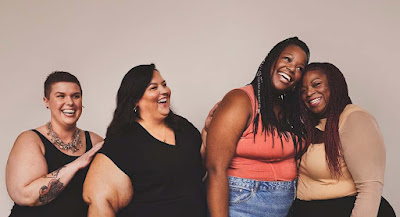... quite a bit of harm, as it turns out, even when it comes to sex, Sex, SEX!
Marketing campaigns can change the culture. Just take a look how our attitudes towards smoking have changed in the last 60 years. We've gone from smoking in restaurants to having smoking and non-smoking sections in restaurants to no smoking indoors at all.
As a brief aside, I saw a guy smoking a lung dart in the gym parking lot a few days ago. His dedication to both ends of his health was impressive.
Anywho, I recently asked ChatGPT for a list of ad campaigns that had deeply affected the culture in the last 10 years. Three of them directly applied to the current theme on this blog that cultural changes are killing romance which is harming women and stunting the development of men.
Dove Real Beauty Campaign
Objective: Challenge traditional beauty standards and promote body positivity.
Attack on romance: Denying the existence of objective standards of feminine beauty. They really exist and men really respond to them. You can be body positive all you want, but fat, slovenly chicks don't get a lot of attention from the guys.
Always #LikeAGirl Campaign
Objective: Redefine the phrase "like a girl" to empower young women and girls.
Attack on romance: Denying the existence of sexual dimorphism. Girls fight like girls. Boys fight like boys. There is a huge difference. When you watch videos of modern women wailing about the lack of romance in their lives, a common theme is that men aren't acting like men any more and being protective is near the top of the list.
"Love Has No Labels" by Ad Council
Objective: Promote diversity and inclusion by challenging implicit biases.
Attack on romance: Denying objective reality. There's only one way to make a baby. Our bodies and psyches are designed by evolution to do that. You can have whatever fetishes or sexual disorders you like, but babies still come from the same act. All sex acts are not the same. When you deny that, you culturally demote baby-making sex by equating it with every other way of getting your jollies.
I went to YouTube and watched a couple of the ads from each of these campaigns and they were actually really sweet. It's pretty hard to get agitated about a campaign that shows women of modest beauty embracing their looks instead of hating themselves. All of these campaigns were well-meaning, but they still did significant damage to the culture in general and romance in particular.
We didn't get to where we are - increases in depression and loneliness, decreases in marriage and fertility rates - in spite of these campaigns of kindness, but, in part, because of them.
What harm is it to you if Susie claims to be Jack and injects testosterone into her body until she looks like a pubescent, high school boy? Well, none, directly from her, but the corresponding campaign to force me to call her a boy does massive damage to me and everyone around me. It kills the foundations of romance which hurts the young women I know and stunts the development of the young men I know. I've experienced that personally. The harm is very, very real.
So my answer to the Dove Real Beauty people is no, this is not a good idea. It's one thing to accept your flaws, but it's quite another to say your flaws are beautiful. They just aren't.
 |
| These women are not beautiful. That's reality and convincing them that the rest of the world is wrong doesn't change anything, it makes them bitter at the rest of us. |
More to follow.
Other Posts in this Series
Recapping recent blog posts, here's where we are so far:
- Classically beautiful and feminine women are a rarity these days.
- Romance is founded upon the biological differences between women and men. The more you deny and minimize those, the less romance you will have.
- Whatever cultural changes we've been making, they are in opposition to evolution and are not driven by natural, Darwinian forces.
- Our younger generations are less happy, more lonely and deeper in debt.
- We are told to believe that ugly is beautiful.
- We aren't just denying sexual reality, we are fighting against it.
- Young women are being deeply injured by this.
- Many of our institutions have become incompetent because of this.
- There isn't a government solution for it.
- Angry, bitter women are sabotaging the lives of other women.
- The effort to spread the acceptance of sexual degeneracy is harming romance.
"We've gone from smoking in restaurants to having smoking and non-smoking sections in restaurants to no smoking indoors at all."
ReplyDeleteOnly for tobacco; fro pot, it's "Smoke 'em if ya' got 'em" and "Why don't you got 'em? Don't you know that pot is a fantastic new revenue-stream for the government?"